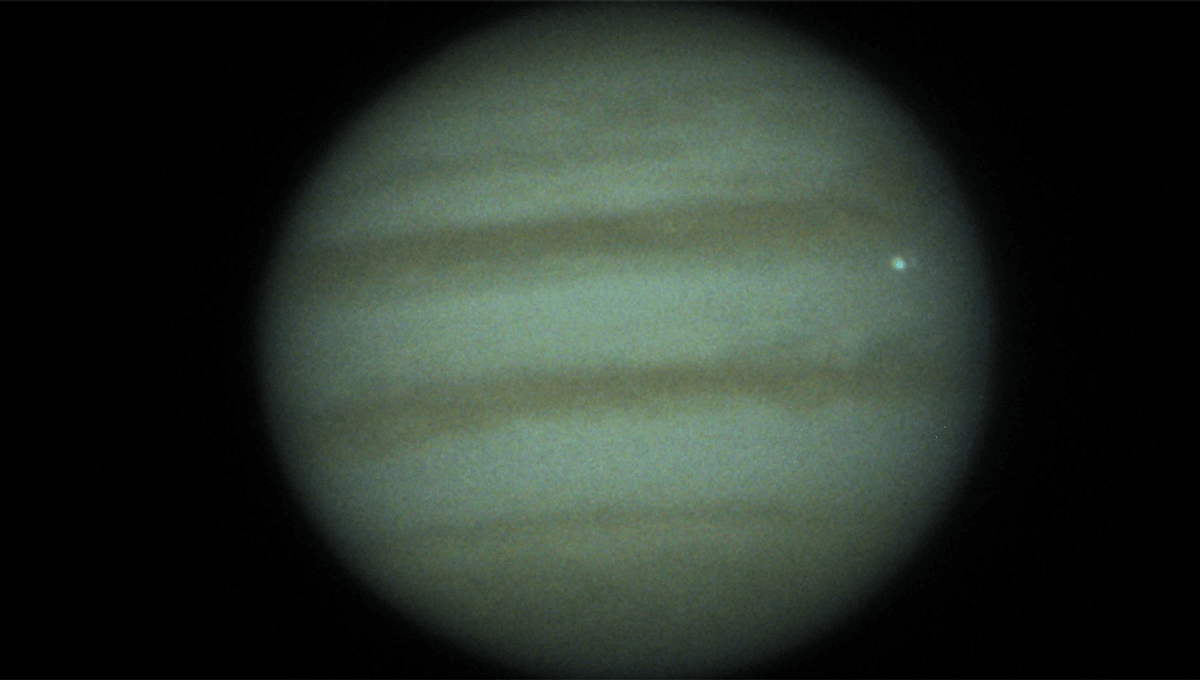
An amateur astronomer has captured an object slamming into Jupiter, producing a bright flash of light as it disintegrated in the gas giant’s atmosphere.
Jupiter is so massive that it technically doesn’t orbit the Sun. With such a gravitational pull, you’d expect it to be regularly impacted by asteroids that make their way to its part of the Solar System, and you’d be right. One model simulation study in 2013 estimated that the planet experiences 12−60 impacts of 5 to 20 meter (16.5 to 65 foot) diameter objects every year. Another study estimated that larger objects of around 1.6 kilometers (1 mile) in diameter impact the planet once every 6,000 years.
However, actually capturing these impacts as they happen is something of a rarity. At the time of that study, three flashes had been captured by amateur astronomers on the planet, which the team determined to be asteroids.
The latest impact, captured by amateur astronomer Kunihiko Suzuki on November 15, is one of only a small handful of such events recorded on the planet.
Studying the light curves from such impacts can tell us about the amount of energy released by the object (be it an asteroid or comet) as well as what the object was.
The more we learn about such impacts the better. Many suspect Jupiter plays a role in protecting the inner planets from asteroid impacts, drawing comets and asteroids away from us.
For a smoother version see: https://t.co/1uFriYiRrN pic.twitter.com/iKnmcyt1in— Petr Scheirich (@PScheirich)
Searching for systems with gas giants may help us find planets that have been similarly shielded from extinction-causing impact events that could wipe out life before it progressed beyond single-celled organisms. However, there have also been suggestions that the planet acts as a slingshot, pulling in objects from further out in the Solar System that would otherwise not have made it closer to the Sun.
Source Link: Amateur Astronomer Captures Large Flash As Something Slams Into Jupiter